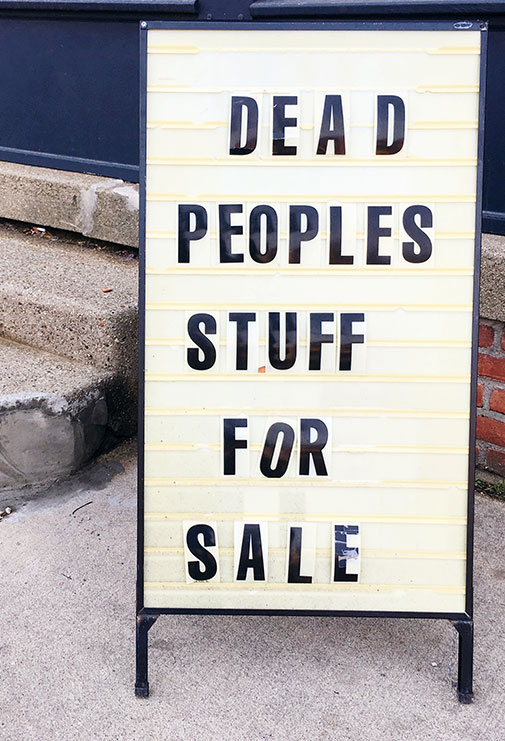- Vol. 05
- Chapter 01

The Final Price
The blender was something straight out of a late 1950s TV commercial. I imagined Weight Watchers promos ticker-taping across the black and white screen. A woman in a belted A-frame dress, with a bouffant helmet of hair, holds the appliance up for the viewer. The bed and plastic lid of the blender are no longer faded and yellowed, but a brilliant clinical white that suggests the good life and diligent dental hygiene.
A ripe banana and skim milk with crushed ice. BZZZZZZZ. A low-calorie breakfast on our meal plan! Satisfaction and a trim body. Doctor approved.
But the harmonica was what snagged my eye and my desire, a vague memory of Christmas fever and unexpected treasures. Standing in the second-hand shop, I watched the other ghouls pick up and fondle the merchandise. Lost objects rescued from the trash heap, ownerless, reclaimed by market forces.
I recalled rummaging through my great aunt’s cedar chest, after her death at 92, reminded of atavistic compulsions. Weren’t we all scavengers and hoarders? Once upon a time. I had brushed my fingers over the lacy fringe of a handkerchief that someone had personally sewn. Well, maybe there had been a Singer Sewing Machine involved somewhere in the process, and the cloth had likely been bought at Woolworths or a fabric store in a downtown long sheared to the ground and reseeded by high rises and malls. Still, touching that smooth surface felt as though time travel might be possible on a snippet of vintage cloth.
Smelling salts and cologne, a film of sweat on one’s brow, a veil between a cough and a stranger, a corner to swipe that one stray tear.
The Final Price
An elegant peak of white, ironed and folded, rising from the breast pocket of a dark business suit. A drooping flap of cloth, stained with oil and grease, hanging from a mechanic’s back pocket.
But the harmonica. Tossed by fate on the display table, it stood out among a clutter of skeleton keys, a gentleman’s manicure set, nutcrackers, bottle openers, cookie tins, serving spoons, hand mirrors.
Had the harmonica been a child’s toy? A companion at a hobo’s campfire? Did it play early Chuck Berry covers on stage at the local bar?
A dead person’s breath flowed through the narrow square tunnels, lips sealed to the metal casing, fingerprints smudged the top and bottom edges. If I held it to my ear, would I hear the sigh of fading notes?
A small sticker—price sketched in magic marker—marred the surface. I felt a pang of grief, similar to the sadness I used to feel as a child watching animated Christmas tales about the land of lost toys. Or were they misfits? Yes, that, too. Toys and misfits, without owners.
With reverence, I ferried the harmonica to the cash register. It lay flat on the palm of my hand, a miniature coffin, heavier than the metal and wood that comprised it.
“Is this the final price?”
